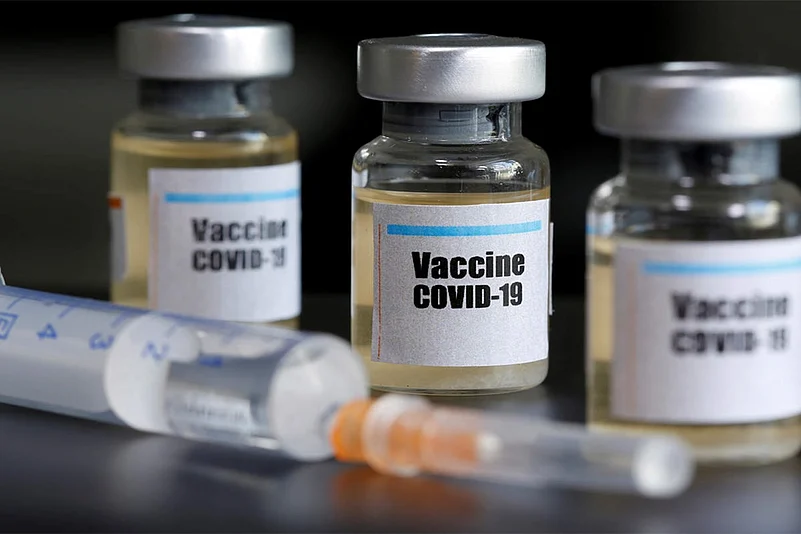Covid-19 has kept the world on its toes ever since its outbreak. It has been almost a year of uncertainty but thanks to the efforts of the healthcare fraternity, it seems we are heading towards a better future. Covid-19 vaccines from different manufactures are available indifferent parts of the world. So far, vaccines from Pfizer, Covaxin, Covishield, Sputnik V, Moderna are being given to healthcare workers and vulnerable population groups in many countries.
In India, the DCGI (Drugs Controller General of India) has approved two vaccines, Covaxin developed by Bharat Biotech and Covishield from the Oxford/AstraZeneca manufactured by the Serum Institute of India (SII). More than 1.3 crore doses have been administered as of March 3, as per a ministry of health and family welfare report. On other hand, India has given 2.4 crore Covid vaccine doses to more than 60 countries so far. In the near future, 2 more vaccines may get approval for use in India. It will give a boost to the Covid vaccination drive.
Advertisement
With these ongoing efforts, we should also understand that how vaccination will play a role in eliminating Covid-19. Most importantly, everyone is interested to know that how and for how long the vaccine will protect us from the virus.
Constituents of the vaccines
A tried and tested platform to develop the vaccine is one of the basic scientific standards, which need to be looked at. As the behaviour of disease is so uncertain and variable, scientists across the world are trying various approaches to develop a safe and effective vaccine. Some of them are mNRA, human adenovirus or chimpanzee adenovirus. Covishield is made from a weakened version of a common cold virus/ adenovirus from chimpanzees. Sputnik V is based on human adenovirus platform, a tried and extensively tested one that was used to successfully fight Ebola in the past. The AstraZeneca vaccine on the contrary is based on chimpanzee adenovirus. Covaxin is developed using Whole-Virion Inactivated Vero Cell derived platform technology.
Efficacy
Vaccine efficacy is defined to measure whether the vaccine is able to prevent the disease significantly or not, and if so, to what extent. Though no vaccine would be 100 per cent effective, clearly, the higher the value of vaccine efficacy, the better is the performance of the potential vaccine. While Bharat Biotech vaccine Covaxin and Oxford-AstraZeneca vaccine Covishield continue to provide protection against the coronavirus, there are vaccines globally such as Johnson and Johnson, Sputnik V to name a few that have proven extremely efficient during the third phase of clinical trials. While Sinopharm stands at 79.3 per cent, Johnson and Johnson at 85 per cent and Sinovac at 50.4 per cent. Sputnik V has proved to be 91.6 per cent effective, while also offering full protection from severe cases or hospitalisation due to Covid-19.
Advertisement
Lifelong protection from Covid-19
Various vaccines that have been developed to counter SARS CoV 2 have been designed keeping its various variants in mind but there is also a group of clinicians and virologists who believes that those once exposed to the virus may have lasting immunity against it and may not need vaccination. The researchers, on the other hand, have stressed that mutated forms of SARS-CoV-2 may be able to reinfect people who have recovered from an earlier infection.
A vaccine has some characteristics of the virus, which alerts the body to produce an anti-body so that if the real virus attacks it can protect the body. It is yet to be established that a vaccine can provide life-long immunity to a person. The benefit of the vaccine is that it will provide training to the body and will prepare it to fight against Covid-19. It depends on the individual immune system how good it gets trained with the help of the vaccine. The duration of anti-body might also vary from vaccine to vaccine as some vaccine might give longer protection compared to others.
The immune systems of more than 95 per cent of people who recovered from Covid-19 had durable memories of the virus up to eight months after infection. The results provide hope that people receiving SARS-CoV-2 vaccines will develop similar lasting immune memories after vaccination.
However, let’s not forget that vaccine cannot be the only solution in controlling the virus. This also needs to be complemented with Covid-appropriate behaviour (handwash, hygiene, physical distancing and mask). With several promising vaccine candidates, some approved and a few under review, the next question in the search for an ideal vaccine will remain its long-standing immunity.
Advertisement
(The author is a public health expert)




















